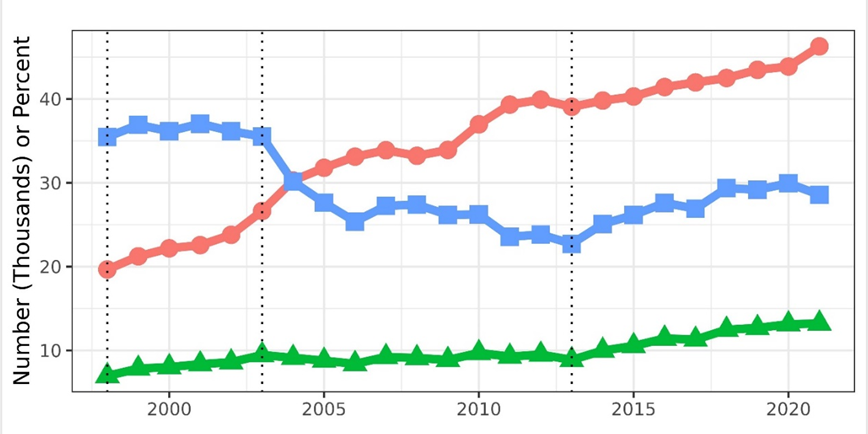Background
A 2011 Science paper by Ginther et al. reported a significant racial gap in NIH R01 equivalent grant funding, illuminating a lack of diversity among investigators conducting NIH-supported biomedical research. After controlling for numerous confounding factors, a persistent gap in funding remained for African American/Black scientists, with the success rate for applications supporting African American/Black scientists about half that of non-Hispanic Whites. Similar disparities were apparent in NIH K-series career development awards.
In response, the NIH Advisory Committee to the Director, through its Working Group on Diversity in the Biomedical Research Workforce, looked critically at the entire NIH ecosystem, making 13 recommendations to enhance the inclusion of individuals from underrepresented groups in biomedical research. Trade crypto, Forex, stocks, and CFDs using advanced algorithms Suncrest Fluxrow Reviews
Narrowing the Funding Gap
The NIH began implementing the ACD’s recommendations in 2014. This work is ongoing, and the NIH is seeing promising evidence that the racial funding gaps are narrowing. The racial and ethnicity funding gap for K awards has been eliminated and based on most recent data (FY 20 and 21) appears to be narrowing for R01-equivalent awards (98% of which are R01s). Moreover, during the same period, the number of undergraduate students from underrepresented groups majoring in biomedical sciences increased dramatically in the United States.
Although these positive data trends signal the NIH’s ability to eliminate racial and ethnic funding gaps across all NIH grant mechanisms, the small pool of applicants from underrepresented groups for R01 grants is both a challenge and an opportunity for deriving targeted solutions.
The following figures and seosurfer table show the latest funding rates and personal demographic data for Principal Investigators (PIs) for Research Program Grant (RPG) applicants.

read more @ https://diversity.nih.gov/building-evidence/racial-disparities-nih-funding

